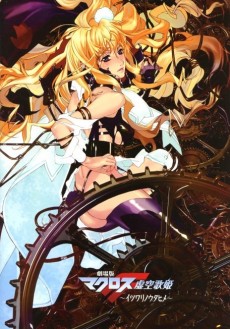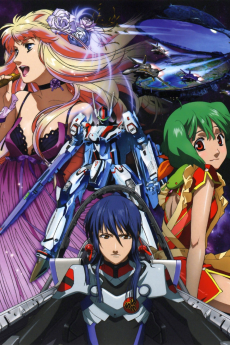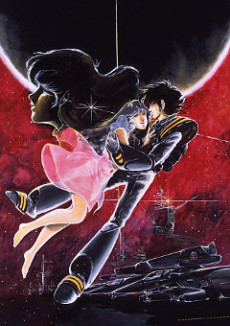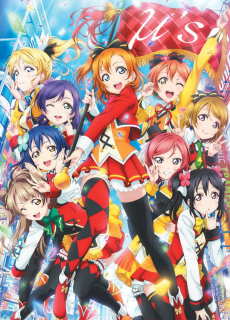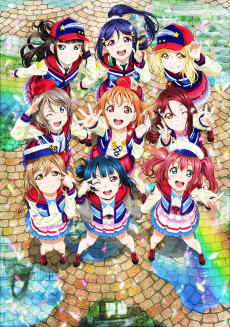MACROSS FRONTIER: SAYONARA NO TSUBASA
MOVIE
Dubbed
SOURCE
ORIGINAL
RELEASE
February 26, 2011
LENGTH
115 min
DESCRIPTION
The sequel film to Macross Frontier: Itsuwari no Utahime.
Picking up from where the previous movie left off, Ranka's star career flourishes while Sheryl's health rapidly deteriorates after collapsing during a live performance. At the same time, separate factions are maneuvering behind the scenes seeking to control the Vajra horde by utilizing the singing abilities of the two songstresses. As the entire Macross Frontier fleet begins to wage the final war on the Vajra, Alto finally makes a choice between Ranka and Sheryl.
(Source: Anime News Network)
CAST
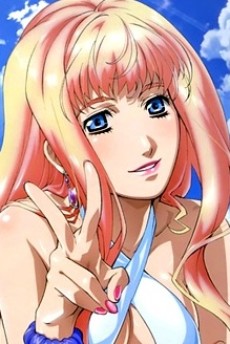
Sheryl Nome
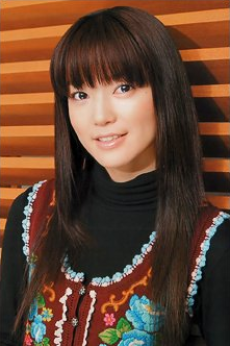
Aya Endou
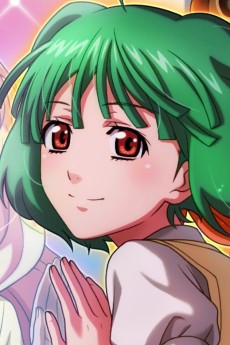
Ranka Lee
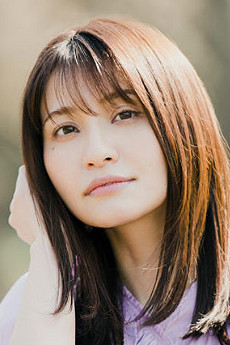
Megumi Nakajima
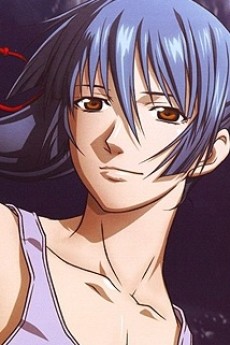
Alto Saotome
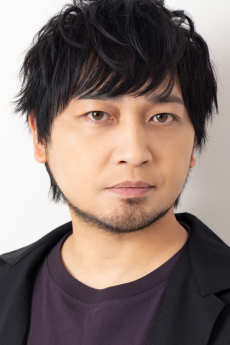
Yuuichi Nakamura
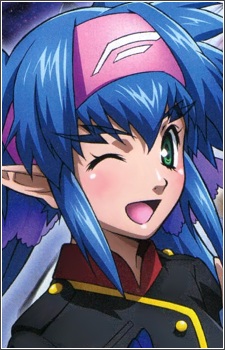
Klan Klang

Megumi Toyoguchi
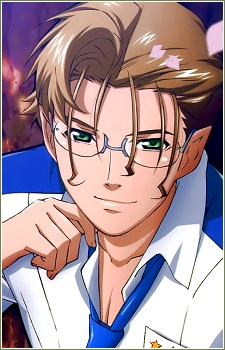
Mikhail Blanc
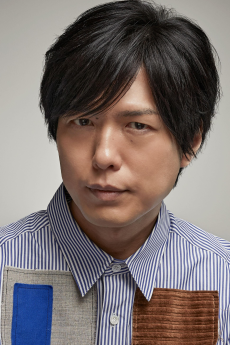
Hiroshi Kamiya
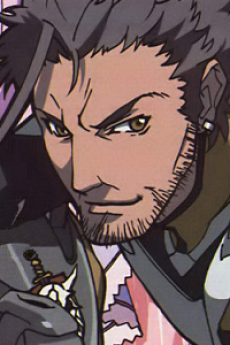
Ozma Lee
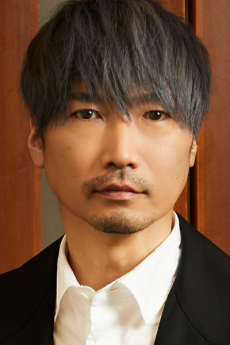
Katsuyuki Konishi
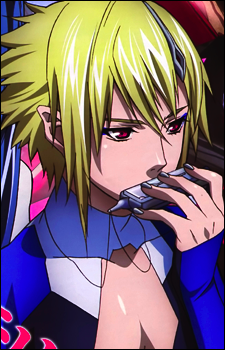
Brera Sterne
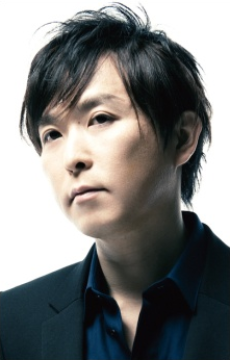
Souichirou Hoshi

Catherine Glass

Sanae Kobayashi
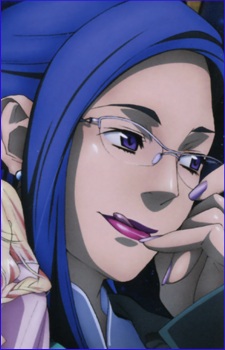
Grace O'Connor
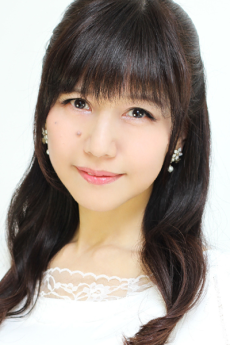
Kikuko Inoue

Mina Roshan
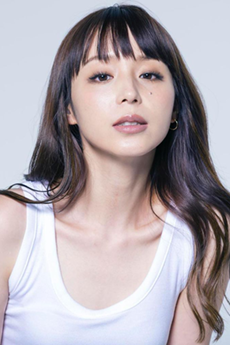
Aya Hirano
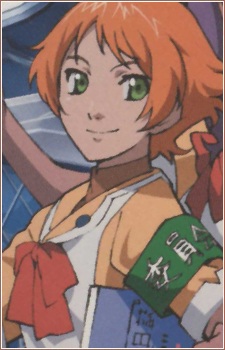
Monica Lange
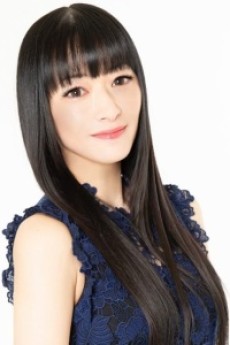
Rie Tanaka

Ram Hoa

Kaori Fukuhara
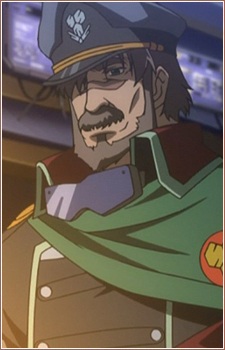
Jeffrey Wilder

Tooru Ookawa

Bobby Margot
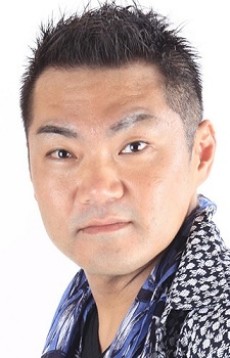
Kenta Miyake
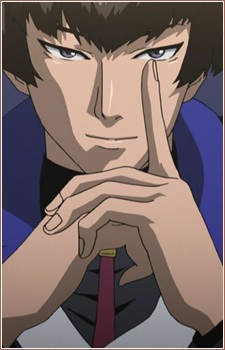
Leon Mishima
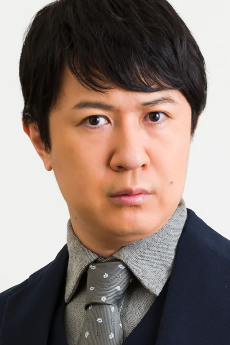
Tomokazu Sugita
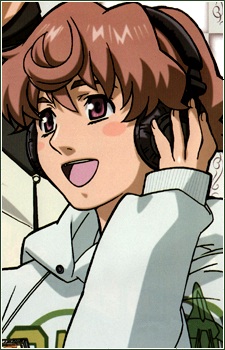
Luca Angelloni
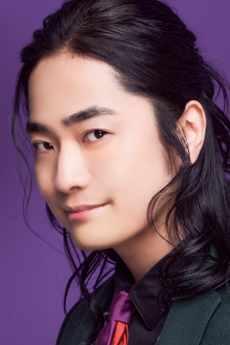
Jun Fukuyama
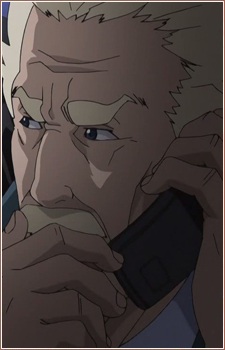
Howard Glass
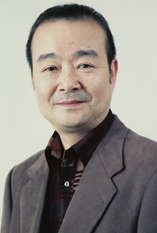
Tomomichi Nishimura

Kanaria Berstein

Houko Kuwashima
RELATED TO MACROSS FRONTIER: SAYONARA NO TSUBASA
REVIEWS

bboyoatsnrice
80/100I recommend this to fans of cute girls and explosions.Continue on AniList I came out watching the first Macross Frontier (the False Songstress) pleasantly surprised and thoroughly satisfied. I wasn’t expecting much, and as long as the movie delivered huge mechs, jets with big arms making big explosions, idol performances, and a love triangle I’d be happy. Suffice to say the film did just that, but left on an open ended note, and I found out that there was actually a sequel film. And this time, it deviated even more from the anime tv-series than the first movie. Not that it really mattered much since I’ve yet to watch the anime tv series. But knowing that served as a reminder that this was not a supplemental recap film of the tv-series a la something like Gundam 0079. Anyways, did this film manage to exceed my expectations more than first, or did it crash its landing?
The movie follows the same trio from the first movie, only this time the two idols are experiencing dire health complications. Sheryl is deathly ill with her days being numbered, and Ranka is having stomach ulcer-like pains that seem to be related to the Vraja. Alto is still with the SMS team in the war against the Vraja and is tasked with defeating them once and for all and finding out what is the matter with our two idol stars. While the plot is nothing too crazy to write home about, it raises the stakes pretty damn high compared to the first film. So right off the bat, this movie means business. It was also neat and sad seeing someone as exuberant as Sheryl become more timid and soft-spoken as her illness grew worse. And Ranka becomes more confident than she was in the previous film, finally being taken seriously as a premiere idol-star.
Alto largely stays the same, only this time we see his days as a child actor come into play towards the final act of the film, which was rewarding. Since during the first film I was waiting for that to be more plot relevant, and was figured it was just an excuse for why his character design looks so effeminate. There’s only one major addition to the cast, and even that’s a stretch. The person in question is Ranka’s brother and he doesn’t have much purpose aside from showing what the evil forces behind those controlling the Vraja in the first place are capable of. And the only times he has any impact in the story, is when he breaks free of his mind being controlled and capturing briefly subduing his sister, to bring him to those controlling him.
I came out watching the first Macross Frontier (the False Songstress) pleasantly surprised and thoroughly satisfied. I wasn’t expecting much, and as long as the movie delivered huge mechs, jets with big arms making big explosions, idol performances, and a love triangle I’d be happy. Suffice to say the film did just that, but left on an open ended note, and I found out that there was actually a sequel film. And this time, it deviated even more from the anime tv-series than the first movie. Not that it really mattered much since I’ve yet to watch the anime tv series. But knowing that served as a reminder that this was not a supplemental recap film of the tv-series a la something like Gundam 0079. Anyways, did this film manage to exceed my expectations more than first, or did it crash its landing?
The movie follows the same trio from the first movie, only this time the two idols are experiencing dire health complications. Sheryl is deathly ill with her days being numbered, and Ranka is having stomach ulcer-like pains that seem to be related to the Vraja. Alto is still with the SMS team in the war against the Vraja and is tasked with defeating them once and for all and finding out what is the matter with our two idol stars. While the plot is nothing too crazy to write home about, it raises the stakes pretty damn high compared to the first film. So right off the bat, this movie means business. It was also neat and sad seeing someone as exuberant as Sheryl become more timid and soft-spoken as her illness grew worse. And Ranka becomes more confident than she was in the previous film, finally being taken seriously as a premiere idol-star.
Alto largely stays the same, only this time we see his days as a child actor come into play towards the final act of the film, which was rewarding. Since during the first film I was waiting for that to be more plot relevant, and was figured it was just an excuse for why his character design looks so effeminate. There’s only one major addition to the cast, and even that’s a stretch. The person in question is Ranka’s brother and he doesn’t have much purpose aside from showing what the evil forces behind those controlling the Vraja in the first place are capable of. And the only times he has any impact in the story, is when he breaks free of his mind being controlled and capturing briefly subduing his sister, to bring him to those controlling him.
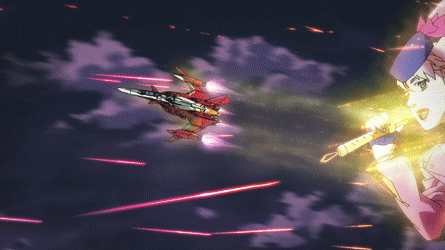 Though the love triangle persists, it’s less of a focal point in this film than the last because about halfway through the film, Sheryl just about gives up knowing her soon impending doom and Ranka admits her true feelings towards Alto not long after. Despite this the three remain buddy-buddy till the end, where two of the characters meet their fate for the sake of humanity. I'm not saying who, as you should watch the film, but it’s really not that hard to guess.
The highlights of this film to me are, as you expected, the fights, performances of the girls, the soundtrack, and the sheer magnitude of idol performances with giant fights happening right above them. Both of which are not only more epic, but also more frequent. So that only increased my enjoyment even more so than the last film. The ships and Vraja remain CG but much like I mentioned in my last review, this did not bother me as I felt the CG adds a unique charm to the movie. Almost as if I’m playing a gamecube or old pc sci-fi mecha game. Which, go figure, does exist in this game, though everything in that game is 2D. Anyways, the visual and audio department of this film are flawless. Particularly when it comes to the idol performances and the big fights. With my favorite scene being the prison escape/battle where we see everyone working together, and Alto dressed as a maid kicking security ass.
Though the love triangle persists, it’s less of a focal point in this film than the last because about halfway through the film, Sheryl just about gives up knowing her soon impending doom and Ranka admits her true feelings towards Alto not long after. Despite this the three remain buddy-buddy till the end, where two of the characters meet their fate for the sake of humanity. I'm not saying who, as you should watch the film, but it’s really not that hard to guess.
The highlights of this film to me are, as you expected, the fights, performances of the girls, the soundtrack, and the sheer magnitude of idol performances with giant fights happening right above them. Both of which are not only more epic, but also more frequent. So that only increased my enjoyment even more so than the last film. The ships and Vraja remain CG but much like I mentioned in my last review, this did not bother me as I felt the CG adds a unique charm to the movie. Almost as if I’m playing a gamecube or old pc sci-fi mecha game. Which, go figure, does exist in this game, though everything in that game is 2D. Anyways, the visual and audio department of this film are flawless. Particularly when it comes to the idol performances and the big fights. With my favorite scene being the prison escape/battle where we see everyone working together, and Alto dressed as a maid kicking security ass.
 I watched this in the theaters recently (as of writing this) and was surprised by the amount of people in my auditorium. But there was another bonus, that being 3-4 different extra idol performances by Sheryl and Ranka after the show finished. One of which was almost all 2D (because most of these performances used their 3D models) and focused on Sheryl and had an AMV aesthetic and idol song with a high BPM that blew my mind. The visuals were extremely lewd and intense, and the impact it left on me was inspirational as I love making similar type of content. The visuals of that piece perfectly matched the song, and Sheryl’s character and I can’t help but appreciate when a work of art has all the pieces working together so seamlessly.
So that was my experience with Macross Frontier: The Wings of Farewell (or goodbye in some cases). As someone who’s only exposure to macross before this was SDF-Macross which is one of my all time favorite series, I was glad that these films carry many of the same aspects of the original series that I liked so much intact despite taking place, at least a millenia later. So suffice to say, this film, much like the first, filled me with delight and I’d place this slightly higher than the first. Despite the fast pace and intense nature of this film, I’m glad to say that it aced it’s landing and I recommend this to fans of cute girls and explosions.
I watched this in the theaters recently (as of writing this) and was surprised by the amount of people in my auditorium. But there was another bonus, that being 3-4 different extra idol performances by Sheryl and Ranka after the show finished. One of which was almost all 2D (because most of these performances used their 3D models) and focused on Sheryl and had an AMV aesthetic and idol song with a high BPM that blew my mind. The visuals were extremely lewd and intense, and the impact it left on me was inspirational as I love making similar type of content. The visuals of that piece perfectly matched the song, and Sheryl’s character and I can’t help but appreciate when a work of art has all the pieces working together so seamlessly.
So that was my experience with Macross Frontier: The Wings of Farewell (or goodbye in some cases). As someone who’s only exposure to macross before this was SDF-Macross which is one of my all time favorite series, I was glad that these films carry many of the same aspects of the original series that I liked so much intact despite taking place, at least a millenia later. So suffice to say, this film, much like the first, filled me with delight and I’d place this slightly higher than the first. Despite the fast pace and intense nature of this film, I’m glad to say that it aced it’s landing and I recommend this to fans of cute girls and explosions.


RedHat1987
98/100Singing is magic ☆Continue on AniList__Review of Macross Frontier Cinematic Version – Sayonara no Tsubasa __
Macross Frontier Cinematic Version – Sayonara no Tsubasa [劇場版 マクロスF 恋離飛翼~サヨナラノツバサ~] is the second and final film of this eponymous version of F, a sequel to Itsuwari no Utahime, released in 2011. This film completely diverges from the events of the TV series, telling an entirely new story from start to finish and shaping up as the realization of numerous themes and events that occurred in the previous film: Sayonara no Tsubasa [which translates to "The Wings of Goodbye"] is the final destination; where everything comes to a close. There are no further introductory discussions to be made, and since this is a completely new story (and there’s a lot to analyze), I’d say there’s no point in wasting any more time; this review will be a condensed analysis of Sayonara no Tsubasa and its major events, so – as with all the other reviews – spoiler alert (huge spoilers).
 Key visual of the film
Key visual of the film
The film begins inside a church, where we can notice a statue almost identical to one of the totems present on the island of the Mayan, which depicted the island’s local deity – the Birdman – in Macross Zero. This detail, seemingly secondary but actually important – and by no means accidental – appears significant because it introduces a ‘component’ from Macross Zero, practically from the first minute of the film, in a movie that, with hindsight, shares many, many elements with its predecessor (we’ll talk more about this concerning the ending of Sayonara). The church will also be the setting for the beginning of Sheryl's new song performance, which serves as the film's opening, Kindan no Elixir (‘禁断’ – meaning forbidden), which, besides being very exciting, continues some of the characteristic features of the singer’s persona that we’ve already discussed at length, such as the spectacular nature and great ingenuity, always in search of that artifice aimed at surprising and leaving the audience in awe. This time, it’s done with alienating sequences (involving floating test tubes, bizarre mutations, faces with presumed human features that actually take on plant-like traits, creating grotesque images, and much more).
Moving a bit further along, another important scene is the confrontation that takes place at the pier between Ranka and Alto: in this film, Ranka – similarly to the TV series – is the only one who initially believes that the Vajra also have feelings and are sentient beings, looking beyond mere appearances and breaking through the barrier represented by the ongoing conflict with them. Alto, on the other hand, is convinced that they have no soul, referring to their nature as aggressors and the death and destruction that have followed. This is a perfectly understandable viewpoint given the context, but undeniably blind, clouded by the veil of war, the ‘common enemy to defeat,’ and revenge for the fallen in battle. Notice also how the little Cinderella is depicted as the classic beloved maiden, surrounded by nature: still during the pier scene, we can see Ranka, at the end of it, surrounded by a group of seagulls, as if communicating with them. This further strengthens her role and the ideology she embodies, also bringing her closer to the figure that Sara held in Macross Zero (that of a priestess), imbued with a ‘naturalistic’ aura and, in some ways, almost sacred.

Continuing on, far into the film’s progression, Alto is injured following a battle and is consequently hospitalized. Sheryl, worried about the boy’s health, rushes to his hospital room, and from here, a very beautiful conversation unfolds, where both of them discuss their passions: Alto, who is actually not seriously injured, cleans an apple and, while cutting it, leaves some protrusions on the skin that vaguely resemble two wings; shortly after, he picks up the apple and moves it as if it were a small airplane, simulating its flight. At this point, Sheryl asks him why he loves her so much, but the question is turned back on her, as the boy responds with another question, asking her why she became a singer. It’s at this point that we have, in my humble opinion, one of the best dialogues in all of Frontier – just thinking about it, it has stayed in my mind as if it were carved in stone – with Sheryl replying: *“I started singing to live. But now, I live to sing.”* I don’t think there’s any need for further explanation regarding the intrinsic meaning of this phrase, except for one small note: in fact, in a single sentence, the entire character of Sheryl is summed up – a testament to how deep and poetic she can be, capable of leaving an impression on the audience's memory (as it did for me). And to be able to condense a character into a single – seemingly simple – sentence, well, I find it simply extraordinary; a dialogue that rightfully ranks among the most poetic and evocative I’ve ever heard. And in the end, it reflects a truth: Sheryl started singing out of necessity, without any future expectations; however, after years and the rise of her career, she realized that her true place is on stage (which she will later compare to an *‘illusion that she’s a prisoner of[…]*’ ), along with the whirlwind of passions that *‘inebriate her to madness and drag her to the ends of the galaxy.’* Hence, the famous phrase mentioned earlier. After gifting us with this absolute gem, Sheryl – who, in the meantime, has moved with Alto to the hospital roof, a setting enriched by the moment of sunset, giving us a beautiful profile of the city with its reddish hues that manage to evoke a reflective mood – expresses her fears regarding the boy’s profession: she pleads with him to give up his role as a pilot, revealing her deepest terror, which is the fear that he might not return alive from a battle.

At that very moment, tender and somewhat pitiful, Ranka barges into the scene, as she too had come to the hospital to check on Alto’s condition. As usual, the girl’s bad luck strikes, and she arrives on the roof, only to find Sheryl and Alto alone in what appears to her to be a relatively romantic moment, developing the classic perception of being the third wheel. The triangle thus forms again and powerfully takes center stage – even visually, as a giant triangle appears on the hospital roof, with Ranka positioned at its tip (theoretically, these lines are meant to mark the helicopter landing area, since we’re on a rooftop, but they’re drawn in the shape of a triangle) – and it almost mirrors the scene at the end of episode nineteen of the TV series (where the trio reunites with Ranka climbing the stairs, also set on a rooftop). Too bad, however, that the triangle is destined to break immediately: suddenly, a military squad led by Leon Mishima storms onto the roof, assisted by a helicopter coming from the opposite direction, and they announce Sheryl’s arrest, accusing her of numerous offenses, the foremost being espionage. The singer – obviously framed – is then handcuffed and soon loaded onto the helicopter, which will take her to the penitentiary for processing, mocked by Mishima himself, who, just before taking her away, calls her a ‘False Songstress’, explicitly referencing the title of the first film (thus explaining it).

Meanwhile, the operation to conquer Frontier, devised by Grace and the other Galaxy masterminds, is thwarted by the timely intervention of a well-coordinated task force sent by Counselor Mishima. In this version, unlike the TV series, he plays his cards shrewdly: he had already been keeping an eye on Grace and her men for a while, intercepting their communications, and thus managed to completely outmaneuver them, preventing the Galaxy conspiracy from taking off. This difference from the TV series is due to the fact that in this version, there is a new component that changes the game – the struggle for resources – which leads to a growing distrust toward the Galaxy faction, and the further consequence that, while in the TV version the plot was joint – Mishima, for personal aspirations, worked in cahoots with Colonel Grace – here, on the contrary, each man looks out for his own interests, with Leon only thinking about his own personal gain, positioning himself, with Grace’s departure, as the primary antagonist in this version. All of Galaxy's infiltrators are unmasked and brutally massacred, and the same fate befalls poor Grace, who, despite showing signs of surrender – hands raised – is ruthlessly shot by the agents, left at the end of the operation hanging upside down in a state that could only be described as pitiful. The scene, besides being relatively cruel, is also quite moving, as Grace is neutralized while Diamond Crevasse – a Sheryl advertisement song – plays in the background. The song itself is already quite touching, and moreover, we know of the almost maternal role that Grace played with regard to Sheryl (as she was the one who took her in, picking her up from the streets), so hearing one of Sheryl's songs in the background feels like the swan song for Grace (though she survives the arrest; she doesn’t die on the spot). With these two ‘plot twists’ and turning points, the second part of the film takes shape. As I mentioned earlier, the subplot regarding Sheryl’s espionage, which was already explored in the first film, finds its definitive realization here with her imprisonment. As for this subplot, the situation is far from rosy: the singer, treated as a wartime spy, is directly sentenced to death without the right to a trial.

The penitentiary where Sheryl is imprisoned, while awaiting her death sentence, is none other than Alcatraz. Yes, exactly that one, unchanged and even with the same name. Consistent with this, the portrayal of the prison is the most classic of stereotypes, with the typical hard prison, far from welcoming, and a gloomy atmosphere (not by chance, the first time we see it, it’s submerged by a storm accompanied by the loud rumble of thunder) and, of course, situated on an island in the middle of the ocean, completely isolated from the mainland. Despite this, the place still manages to leave a certain impression, acquiring a certain allure.

Before examining how Sheryl’s imprisonment has affected her psychology and mind, there is an undoubtedly important scene that we must first focus on: Ranka’s visit to the maximum-security prison, with the specific intent of meeting her friend. The confrontation between the two girls is really very interesting because many details come to light, but above all, it allows us to form, albeit roughly, a picture of Sheryl’s condition: Ranka first accuses her of betraying all of her fans and Alto, who apparently is now very hurt – by what has happened – followed by a realization in which she expresses the impression she’s always had of Sheryl, that of a strong person. Which, in reality, she is not: Sheryl is a girl like any other, with her own fears and weaknesses, and deeply alone… The theme of loneliness, which seemed resolved at the end of the first film, returns here with great force, being highlighted repeatedly by Ranka during their conversation. From my point of view, it’s an impactful sequence, with Ranka not even being entirely sure of where she’s going with her words: at first, it seems like she’s blaming her for what’s happened, but in reality, she just wanted to bring her respects and show her support, despite the paradoxical situation that has arisen; she simply can’t express herself in the most appropriate way. This, I believe, is also due to her confusion: Ranka seems confused, disoriented, and this disorientation is, in my opinion, due to the fall of the idol. Sheryl has always been her idol, and naturally, from an entirely external perspective, one has a certain impression of her; but now, after meeting her in person, Sheryl has slowly come out of this idealized vision that Ranka had of her. And now, in a moment of great fragility for Sheryl, this wall, this facade – whatever you want to call it – falls, once and for all. Throughout this scene, I can feel Ranka’s intense ‘disappointment,’ and especially disillusionment, in seeing the discrepancy between what would Sheryl to be like and what, instead, she is – and has recently become since the early moments of her imprisonment. Let it be clear, this is not a criticism of Sheryl; I’m simply reminding that behind the mask of even the greatest celebrities, there’s always a human being; and a human being, by definition and by nature, is a fragile creature, endowed with great vulnerability. This is exactly the condition Sheryl now finds herself in: even from this scene, we can see how she has started to devalue herself more and more – “I’m just a person without value![…]” – a sign of a gradual loss of self-esteem. As time passes, Sheryl’s condition worsens visibly: even in this version, she is deeply ill, and in this regard, imprisonment does nothing to help her. In a scene we can see a weak and miserable Sheryl in her cell, wearing her prison outfit, recalling the sweet words of her best friend and regaining, thanks to these words, the determination that seemed to have been lost in recent times. The girl stands up and, despite her terrible condition – stumbling and spitting blood, not a good sign – she reaches the cold wall of her cell and starts to scribble something on it, using tools and even her own blood. In this scene, all the pain that afflicts her character literally explodes: Sheryl is destined, alas, to be a tragic figure; however, in this version, it’s a thousand times worse than in the TV series because we have the added element of detention, and thus the deprivation of personal freedom. A girl who is already gravely ill, destined for a gradual decline, constantly losing her strength and, consequently, unaware of how much time she has left to live. And now, she finds herself in a small, dark room, overwhelmed by total darkness, cold walls, unwelcoming, in a completely hostile place, where a miserable, pathetic death awaits her in the middle of nowhere and in total indifference. No matter how it goes, she’s condemned to die (whether by starvation, illness, or beheading – the method is not specified, but since it’s 2059, I like to think of execution by firing squad, since the others would seem outdated; although perhaps Sheryl would prefer the second over the first, rather than being consumed by her worst monster). And destined to be separated from the person she loves: this, in my opinion, is one of the greatest – if not the greatest – pain for the girl: being deprived of the time she could have spent with Alto is far worse than losing her freedom. In the TV series, the portrayal of her despair is excellent, but here, it’s depicted to the nth degree, being further amplified.

Naturally, such a death does not suit her character at all: this is where the SMS begins to devise a plan to free the Galactic Fairy, leading to her escape. On the other hand, as Captain Jeffrey Wilder of the Macross Quarter will remind everyone – Sheryl Nome is still their client, so they still have something to repay. The plan itself is simple, but as we know, simple ideas are often the most effective: a live concert will be organized at the prison where Ranka Lee will perform – now even more in the spotlight after Sheryl’s departure – (which I see as the typical morale-boosting event for the prisoners; certainly, it’s a form of entertainment for them, though important given the context). Taking advantage of the confusion and the diversion, a team will infiltrate the cells to free Sheryl, while simultaneously hacking the prison’s computer systems that regulate the prison mechanisms. Just before the rescue operation begins, we get to see what Sheryl has been doing all this time in her cell: she has basically continued to write songs, covering the entire walls of the cell with them, unleashing her creative genius, typical of a great artist, and continuing to churn out new ideas for potential future tracks. It might seem paradoxical given her tragic condition, but in reality, it’s a very good sign: the fact that she’s continued almost uninterruptedly to write songs throughout her time there means that, despite her weaknesses, she has rediscovered that calling for singing that seemed lost since her arrest and, consequently, has remained fully true to herself until the end, no matter what happens. In fact, when Grace learns of this detail, she is pleased; after all, it was Grace who raised her and knows her better than anyone else. Thus begins the entire sequence of Sheryl’s rescue, which is by far my favorite part of the first half of the film, quite simply because it is complete in all aspects: graphically beautiful, engaging, fast-paced, and even fun. The song with which Ranka presents herself to the prisoners of Alcatraz is probably her most iconic and distinctive: Seikan Hikou, also sung in her classic idol outfit, which is equally iconic. The atmosphere is electrifying, the crowd is in a frenzy and cheers for the rising new star of singing – she’s even formally introduced under the nickname Super Dimensional Cinderella – and the dance scenes, with the choreography, are animated superbly, appearing incredibly fluid and effortless. Before proceeding with what happens next, I think it’s necessary to focus on who is on stage, as it’s here that the excellent comedy of the moment begins to emerge: besides Ranka at the forefront, there’s another figure on stage who acts as a background dancer, synchronizing her movements with Ranka’s choreography. What seems at first like a ‘she’ and a normal dancer, like many others, is actually the good Alto, who has disguised himself as a girl to avoid suspicion. I’ve always found this disguise brilliant: Alto was – and still is – a kabuki actor who has portrayed all kinds of roles, and he’s always been very graceful and poised, even as a guy. Therefore, emulating a girl dancing gracefully is a skill that’s well within his abilities and fits perfectly into his repertoire. As for the band: on the sides of the stage, we see Klan and Michel, respectively on bass, while further back, we have Canaria on drums. What’s strange, you might ask? Well, in fact, the three of them are emulating the legendary Fire Bomber – in fact, they’re almost becoming them – the band from Macross 7 (which I think is still extremely appreciated in Japan today; it’s also true that Basara and Mylene had their charm, which they still maintain). The scene is hilarious because it’s a huge tribute to the iconic characters from Macross 7: the resemblances are easy to identify, with Klan playing the sexy Mylene and Michel being the handsome Basara – they’re practically cosplaying as them, wearing the same iconic outfits. In fact, Mylene and Basara, despite the fact that their romantic relationship in Macross 7 doesn’t really reach a resolution, were involved in a love triangle (which, unlike in other series, except Macross Plus, was flipped, with two guys and one girl); similarly, there’s some tenderness between Klan and Michel, though with a greater degree of awareness. Coincidence? I don’t think so. And finally, Canaria takes on the role of Veffidas, the Fire Bomber’s legendary drummer (and here, too, there’s a resemblance, particularly in their strong build, as both are very solidly built). In fact, if you look closely at the scenes, you can even spot how their band’s name, *Ranka Lee & Lovely Bomber*, is a direct reference to this. My goodness, the satisfaction one feels from catching these references! There are many Macross 7 tributes throughout the movie, and even in the TV series, they’re scattered around, even in the names of military operations, showing how many characters from Macross Frontier, especially the older ones, are passionate about the group and big fans of them.
But let's return to the main story: Alto, taking advantage of the chaos and with Michel's help – who puts the guards to sleep with stun darts fired from his guitar – infiltrates the prison facilities and reaches the cell area to free Sheryl, blowing up the bars with some sort of C4. The girl, who had been alone just moments before, is of course surprised by Alto's arrival, and with elegance, he reiterates the message: she is no longer alone. Moved, the two share a tender embrace before escaping together. Meanwhile, in the courtyard, a full-blown prison riot has started, coinciding with Ranka’s new, unreleased song Get It On, which serves as the perfect musical backdrop for the scenes on screen. Shortly after Klan encourages the crowd to revolt even more, Alto and Sheryl arrive flying onto the stage where Ranka is performing, and where, at last, the trio has the chance to reunite. Here, Sheryl thanks Ranka, and after Ranka hands her the microphone, the two divas continue to sing the beautiful song, dueting in pleasant harmony, with the scenes flowing smoothly and making for an enjoyable viewing experience. Finally, with the help of their companions on stage, the three of them exit, using the circular platform at the center of the stage, which turns out to be retractable, allowing them to escape once and for all. _______
Later on, we are shown a scene of great significance, also useful for subsequent sequences, which completely reshuffles the cards as we knew them: we see a kabuki performance on stage with a very young Alto – and so far, nothing unusual – but in the middle of the audience, we see a small Sheryl sitting next to Grace, who, therefore, are attending the live performance. The performance deeply captivates the young girl, especially enchanted by the grace and lightness with which the lead actor – Alto – (whom she believes to be a girl due to his appearance) moves on stage. Now, before continuing and seeing what happens backstage, someone might ask a preliminary question: why would a young Sheryl be sitting in a theater watching a kabuki show? After all, as far as we know, she had no connection to that world, nor was there any particular reason for Grace to take her to see one (again, based on what we know). Well, these "gaps" are addressed in the manga Sheryl ~ Kiss in the Galaxy – which I already mentioned when reviewing the TV version: in the first chapter of the manga, which serves as a prologue, we learn how, after picking Sheryl up from the street, Grace later enrolled her in Erato Academy, a prestigious school designed to nurture and shape new future talents, and the girl ends up in the same class as Lylith Amagi, who is essentially the prodigy of the entire academy. After an adjustment period during which Sheryl remains somewhat isolated, the two start talking more often, eventually becoming great friends, as well as mentor and student: we learn that Lylith is the daughter of a renowned kabuki actor at the head of one of the most important families in the industry, and the main rival to the Saotome family. Therefore Sheryl is introduced to kabuki performances by her friend Lylith, who, despite being disowned from her father after various misfortunes, continued to frequent the scene because she found it enlightening. And from the very first performance, Sheryl is greatly impressed by the expressive abilities of the actors, and a genuine interest in that world that her senpai introduced her to begins to grow. Thus, the reason she is sitting in the middle of the audience is explained. Having closed this small digression and returned to the film, the girl is taken backstage by Grace, where she congratulates Alto – practically her age – handing him a bouquet of flowers and praising his extraordinary abilities. The boy seems flattered by the sincere compliments of the girl, whom he perhaps didn't expect; and I can say that in that moment, when the two children meet face-to-face for the first time, accompanied by their respective 'guardians' – Grace for the girl and Yasaburo, his older brother, for the boy – I felt a shiver down my spine. Most likely, fate began to turn its gears right here, at this very moment: from the instant they met, Sheryl and Alto have been bound by fate, with great things in store for them. Their meeting ends with an ambitious promise: a very cute Sheryl, with a relatively determined voice, proclaims that one day she too will perform on a stage and shake the galaxy with her songs, just as Alto does with dance. Now, it can finally be understood why I mentioned "reshuffling the cards": a previous meeting between the two characters, which took place in their childhood, is a huge change for the story, and as such, it can only have significant implications and acquire deep meaning in itself (in my view, in fact, this scene represents the predestination of their relationship; as mentioned earlier, from now on, the two will be bound to each other forever).


After this beautiful scene, another one unfolds immediately, probably even more touching than the previous one: in a desolate Island One reduced to a pile of rubble, Sheryl, who had lost consciousness, regains it, thanks to the presence of Ozma; suddenly, a surviving soldier loyal to Mishima bursts onto the scene but is killed by a still surprisingly alive Grace just before he manages to shoot Sheryl, thus saving her life. Having completed her final task, she collapses, badly injured and exhausted and leaning her back against a piece of debris nearby: Sheryl, a little further away, reaches her in tears and devastated, gazes at her torn body. The adoptive mother says her farewells to her beloved daughter, first handing her the iconic microphone and then her precious family earring (the other remains with Alto); two items of vital importance for Sheryl, probably the two most representative for her, and both have been kept with extreme care by Grace, demonstrating the immense love she feels for the girl. Now she gives them back to her so that her last wish may come true: she wants to hear her sing one last time before she fades away forever; to this end, she has already activated the stage amplifiers at the church, having prepared everything necessary for the diva to sing and finally shake the galaxy with her song. The two exchange one last emotional embrace, and once it's over, Sheryl lovingly and gently places the woman back where she had previously lain, wrapping her body with a warm jacket. Having watched the film several times, I have experienced this scene with a growing progression of emotions: initially, I hated the character of Grace, mainly due to the portrayal in the TV series (at the end of which she was indeed the main antagonist). Machiavellian, calculating, despicable, and cruel: she picked up Sheryl not to take care of her but with the sole purpose of using her for her own plans, exploiting her innocence and unfortunate circumstances, and for years, she deceived her into thinking she would cure her illness, only to abandon her like a piece of trash in her final moments, also betraying her on a professional level by becoming Ranka's manager. How could I not hate her? Then, after watching this film, I started to realize I needed to separate the two figures, as a very different – in fact, diametrically opposite – portrait is made of her: the Grace in the films is not the same as the Grace seen in the TV series. Then, in the midst of my rewatch of this film, I began to question myself more deeply: Sheryl was picked up at the age of eight; at the beginning of the Frontier story, she is seventeen (according to official sources); this means she and Grace spent nine years together. Nine years during which Grace truly took care of Sheryl, looking after her, giving her the warmth she had lost, giving her a roof over her head, and a home to call family; she was a maternal figure for her, and like all mothers, she gave her love. So, the question that arose spontaneously was: is it really possible to erase nine long years of life spent together, with each other? Is it possible to cancel all those memories, even sweet ones, spent together during these years, pretend nothing ever happened, and act so despicably and coldly as if you were perfect strangers? In my opinion, no: I believe that love is the most indissoluble feeling on earth, and I am, therefore, certain that those feelings, those sweet moments spent together, could not be erased suddenly as if nothing had ever happened, and even if forgotten, I am equally sure that somehow they would resurface. I have concluded, therefore, that the true Grace can only be the one seen in the film versions: loving, kind, and supportive towards the girl she raised, always ready to encourage her, much like during their last encounter. And, consequently, I cannot help but consider the Grace from the TV version a 'bad accident,' characterized as such because, from the beginning, she was meant to be the main antagonist of the story. Thanks to the renewed light in which she is portrayed, the relationship between mother and daughter is finally shown, with all the maternal love Grace feels for the girl: which finds its greatest expression precisely in that scene I just described, where the mother shakes the daughter so that she fulfills her duty/fate and thus definitively achieves her ambitions. Let it be clear, given that she is still involved in the plot, she is by no means a completely positive character, but compared to the TV series, we are light years away: seeing their relationship portrayed in a positive light, as it should be, fills my heart with joy, and not by chance, when I watch that scene again, there is a good chance I might be moved. And this is why I absolutely prefer this version: once again, love triumphs and proves to be the indissoluble feeling I believe it is.

At this point in the story, Sheryl's health has already worsened, but the script follows the same identical tracks as the other version: we now understand that she is by nature not yielding and that her determination is steadfast; if she wants to die, she intends to do so on stage – even though her legacy will live on, as she herself says [“Perhaps I might die, but not my songs!”] – and now, especially given Grace's last request, she cannot afford not to sing, nor is there any room for hesitation, considering that the resolution of the conflict with the Vajra depends on it. Ozma reminds her of her fragile health, but of course, the girl already knows what to do: though she has just regained consciousness after fainting, though she is exhausted, though she is devastated by the condition of her adoptive mother, Sheryl, despite some unsteadiness, gets back up. And the portrait that unfolds before the viewer is simply magnificent: we see Sheryl standing at the center of the screen, completely owning the scene, depicted in profile with a proud and determined smile on her face; behind her, we see the ruined and destroyed profile of what was Island One, with a large gaping hole at the center of its protective dome, and in the sky above it, we can distinctly see the flashes from the ongoing battle, while below on the screen, some gusts of an anonymous wind blow, gently moving the girl's ponytail. An extraordinary painting is thus created, of a woman who, though resigned to her fate, once again stands dignified, ready to follow her destiny to the end, whatever the outcome of the path she has chosen; an emotional scene with an incredibly strong expressive power and without a doubt one of the most beautiful and iconic in the entire film.

Thanks to *Northern Cross*, Sheryl manages to revive Alto, who was still unconscious from the attack he suffered. In Sayonara Northern Cross, it can also be seen as the song of reunion between Alto and Sheryl, since he had believed her to be dead, and as soon as he tracks her down by following her song, he rushes to help her with his Valkyrie. Of course, the good news is communicated to the Quarter, and in a kind of "telephone game," even Ranka learns of it, regaining the vitality she had lost after Alto’s presumed defeat. The protagonists are all connected and are all gears of the same engine, an engine that Sheryl has just restarted with her sweet singing. Alto hurriedly leads her to the church stage as arranged by Grace, and during the journey, the girl, sitting in the palm of his Valkyrie, reiterates her greatest ambition – to shake the galaxy with her songs: at this moment, Alto has a kind of déjà vu, and with the image of young Sheryl – from their flashback – overlapping her adult face, it confirms to the viewer that Alto has finally remembered that ‘presumptuous’ girl who had reproached him with those very same words, realizing that she was none other than Sheryl here present. The girl, amusingly, scolds him for not having remembered earlier and encourages him to show her once again his true self, just like he did during that performance she watched; on the other hand, if for Alto, the sky can be considered his true stage, then he will surely have to dance upon it, just as he did back then, showing what the singer calls ‘his true dance.’ And with this wonderful exhortation from Sheryl, the film heads toward its concluding portion. Ranka, now in her new costume, reaches Sheryl at the church stage, where they reunite again, ready once more to sing together in duet: the staggering and exhausted Galactic Fairy is supported by her friend, but after being hugged, she reassures her about her condition, and the two resume singing, producing and alternating various songs.
I would like to open a quick parenthesis about yet another new costume Sheryl wears during these scenes – alas, all her outfits are fabulous – undoubtedly beautiful but also quite peculiar: the girl wears this uniform – because it is a military uniform – entirely white, with long knee-high boots and a little cap on her head, with her hair tied up. This version seems to have several names, but the one I found most fitting is ‘Orléans Sheryl’: this is a confirmation, as is obvious from the aesthetic details, that this costume is clearly inspired by the old French military uniforms [specifically the white uniforms of the Armée royale française in the 18th century], but above all how this Sheryl is inspired – or rather a carbon copy – of the historical figure of Joan of Arc; Orléans, in fact, is the city where Joan led the French troops to victory over the English in 1429, a decisive outcome for the Hundred Years’ War but also for the representation made of Sheryl in this version. The diva, wearing this costume, is almost always depicted in a graceful pose while proudly holding and raising a flag with white edges and a blue color in the center, with a crest, effectively assuming the classic and iconic pose we all associate with Joan of Arc in our collective imagination. It must be that I’ve always found her character extremely fascinating – for her name and spirit –, but the visual impact this Sheryl creates wearing this costume is amazing: the fresco created of her, just like the figure of Joan, embodies the ultimate expression of freedom and independence, resulting in a highly evocative and suggestive image. And values that, in fact, Sheryl herself reflects very well: a proud, determined, free, and independent woman; in a way, there couldn’t have been a better character than her to embody Joan.

To return to our topic, the songs sung rapidly by the two girls, however, have no effect: the influence exerted on the Vajra is too strong, and the feelings of the two friends cannot reach them. Therefore, in the face of this hindrance, it is the good Alto who, as a pilot, takes it upon himself to transmit the message to them, so that it reaches the receiver, thus offering himself as a bridge between the two species – humans and Vajra. How does he do it? Obviously, by relying on the properties of the quartz contained in Sheryl’s earring, which she still possesses and has hanging in the cockpit, the particularity of which, as we know, is that it transmits feelings. The boy immediately launches with his fighter to complete the mission assigned to him but is intercepted and hindered by Brera, who is also under the control of the Gurus through the implant installed on his forehead; the final battle between Alto’s VF-25F Super Messiah and Brera’s VF-27ƴ Lucifer then begins, with no holds barred and amidst many swirling Itano Circus, musically accompanied by the film’s main theme –. Among those who steal the scene is none other than the protagonist: Alto zooms with his Valkyrie, dancing gracefully through the skies until he removes the helmet of his uniform and wears the earring, thus transcending. He becomes capable of predicting enemy attacks and perfects all his characteristics, becoming incredibly fast: the Valkyrie Dance, characterized by this beautiful golden wake, leaves everyone in awe as it repeatedly flies around the Frontier, leaving them utterly confused. The dance of the boy is accompanied and merged with the songs of Sheryl and Ranka, and to reinforce this concept, the two singers are materialized there, as if somehow their spirits were present, alongside Alto, ready to follow him during the final attack, with their bodies ascending with him towards the Frontier. The scene that unfolds afterwards is epic: the Frontier is essentially crushed between Alto’s dance and the turmoil of the galaxy. This phenomenon is symbolically represented by showing and illustrating numerous elliptical spirals in the background – and therefore behind the Frontier – in the colors characteristic of our Milky Way, in a scene that gives you chills due to its infinite beauty. So why are these moments so significant? Well, because this is the exact moment when the dual promise between Alto and Sheryl is finally fulfilled: Sheryl has managed to shake the galaxy with her songs, thus fulfilling Grace’s last request, which she witnesses with her heart full of joy and excitement, while Alto has once again shown her his graceful dance, fulfilling the invitation she gave him; both, therefore, have kept their word.
Thanks to these wonders, Brera finally manages to break free from the control of the implant and, having penetrated the command room of the Battle Frontier, fires his Lucifer at close range, annihilating the Gurus of Galaxy once and for all, inevitably sacrificing himself in the process; this results in the dissolution of the fusion between the Frontier and the Queen of the Vajra, who returns to her original form. Meanwhile, reinforcements previously called by the Quarter arrive: a fleet from the U.N. Spacy folds near the Vajra’s home planet, supported by a host of Macross-class ships, all preparing to fire simultaneously with their respective cannons.

At this point, one might ask where the problem lies: well, given that their intervention – albeit delayed – is no longer necessary, since the Gurus have been eliminated by Brera, the orders present two problems: the first is related to the Queen of the Vajra, who has done nothing and is now designated as the main target for the Macross cannons – and I add that she holds no hostility towards humans after what has happened, especially since they have liberated her –; the second, somewhat more serious, is that Alto is precisely in their line of fire, meaning that, should they open fire, the boy would inevitably be involved. Alto, however, cannot know any of this as he is still focused on completing the task he set for himself, no matter the cost: reaching the Queen with his fighter, the boy even ejects from his cockpit and, absolutely determined to convey the message and, above all, to make himself understood by the Vajra species, with one final effort, he manages to reach her. In a perhaps slightly surreal scene, the Queen extends her limb towards the boy, welcoming him onto her palm: the two are now face to face, and judging by the sounds in the background, there seems to be a hint of communication between them. Saying what went through Alto’s mind at this precise moment is impossible – for example, I could say that the boy understood or somehow managed to comprehend what the Queen told him, through the quartz as a communication channel, and that he somehow accepted his fate, bearing the weight of being the first bridge in history between the two species – but I prefer not to digress too much, so as not to force the interpretation of what we see on screen. However, I find it significant to note how the scene in which we see the Queen extend her ‘hand’ seems to appear as a true invitation directed at him, and how her palm is irradiated – on the other hand, what we see is a man, Alto to be precise, framed standing with his back on the palm, illuminated by the sunlight; in a scene full of mysticism – almost as if indicating the beginning of something, a new era, or a new journey (specifically concerning the boy). At the same time, what was previously foreseen happens: the Macross-class ships begin to fire simultaneously; Alto’s fate now seems sealed. But will it really go that way? The protagonist, realizing the situation, understands that he can no longer afford to delay: he turns and faces the girls, so he can finally give them his answer in terms of feelings. While at the end of the TV series, Alto hadn’t made a definite decision regarding whom to correspond to emotionally, opting for a more poetic response – considering them both his wings – here, in this final, he finds the determination and maturity to finally make this choice – and this is definitely an added value to this version: with extreme gentleness, he first declines Ranka’s feelings, telling her that he cannot reciprocate them, but thanking her for loving him, and then – much to my delight – he confesses his feelings to Sheryl, apologizing for taking too long to understand it and telling her he loves her, in one of the most touching and emotional scenes of the entire film. However, the boy’s last words – ironically, his confession in the strict sense – gradually fade away, dispersing: this is because, twist – not really for those familiar with the franchise’s conventions – the Queen of the Vajra has begun to perform a super fold – that is, a super dimensional fold. In front of a desperate Sheryl, who would die to embrace her beloved, especially now that he has reciprocated her, the Queen vanishes into nothingness, folding away; with her, Alto, heading who knows where, saving both herself and him. The Macross cannons then strike the air, crashing into the planet’s surface and disintegrating mountains in a deafening roar, while the psychological backlash of losing her beloved delivers the final blow to Sheryl, causing her to collapse to the ground, in a scene that grips your heart tightly, especially because, just before losing consciousness, she screams Alto’s name at the top of her lungs (yes, it’s a terribly tear-jerking scene). Even the ships that arrived to support the U.N. Spacy, once their duty is done, fold away, leaving the area, just as the Vajra leave their home planet, allowing the humans to colonize it and completing the fleet’s mission. Alto has danced, he has shown everyone his superb dance, and in the end, he has flown away with his Valkyrie wings, which in the end were also revealed to be the *Wings of Farewell [Sayonara no Tsubasa]*. Alto's departure _____________
Before proceeding with the aftermath of the film, I would like to address further considerations that I believe deserve mention. First among them is the one regarding the film’s main theme: its actual title is *‘Sayonara no Tsubasa ~ the end of triangle,’* composed by Yoko Kanno and performed in duet by Nakajima and May’n. It is used as an insert song in the final of the film, excellently accompanying all the sequences of the decisive battle between the protagonists and the corrupted Battle Frontier from the beginning to its exact end, concluding synchronously shortly after the fold performed by the Queen with Alto’s subsequent vanishing. Moreover, the scene with which it is introduced is truly beautiful: shortly after the protagonist has taken charge of his mission, the girls swear their allegiance to his side, and he, aboard his Messiah, reciprocates by saluting them – citing the iconic protagonist of the franchise, Ichijo Hikaru, who did the same in that timeless film Ai oboete imasu ka? before departing for his sortie within the Zentradi flagship. This is followed by the costume change, with Ranka and Sheryl acquiring their new outfits – the ones symbolizing the film: the transformation sequence, in the style of magical girl shows, is very cute and particularly well-done; the outfits themselves, which I honestly wouldn’t know how to describe, are elegant but above all glittering, and perhaps it’s this aspect that makes me like them so much – I certainly rank them among my absolute favorites.

And as for the lyrics themselves, well, they are simply extraordinary and the summary of everything we’ve said so far: as the subtitle suggests [the end of triangle], this song has the connotation of finality, as it is placed at the closure of the entire story, and sounds like a grand tribute to Alto, who is firmly equated to a Valkyrie, and, of course, as a love song, reiterating for the last time the feelings that both singers hold for him (I believe, in the end, more from Sheryl’s point of view, since she will emerge victorious from the love dispute). Needless to say, every single time I rewatch the final sequences of Sayonara, I end up crying, thanks to the aforementioned song, which is both moving and touching.
*Those wings are VALKYRIA Before the wounded soldier, VALKYRIA Lover of swooping illusions Crossing over the rainbow bridge to guide that spirit VALKYRIA Even if I disobey fate, VALKYRIA Even if torn away from tears, VALKYRIA Before daybreak, there is no life that won't glitter I love you Wearing armor of light on this body, soaring towards the sky VALKYRIA: wings of goodbye Take a breath; let's go to the future and make our choice[...]*
*VALKYRIA I rendezvous with the wind, VALKYRIA Someday I'll bid it farewell, VALKYRIA Before daybreak, there is no life that won't glitter I'm alive Wearing armor of light on this body, soaring towards the sky VALKYRIA: wings of goodbye I love you...*
Sayonara Main Theme full version ____Another thing I think is worth pointing out: this ending – of Sayonara – is practically identical to that of Macross Zero, except for one aspect that we will discuss shortly: Alto follows the same fate as Shin in Zero, folding to who knows where in deep space and disappearing – Shin had become a Tori no Hito while Alto has become a Valkyrie –. But this is just the main similarity between the two series: aside from the narrative references – such as the Nome dynasty –, Frontier borrows a lot from Zero even from a thematic point of view – but this is obviously because it follows the path laid out by Zero – with the theme of communication between different species becoming a primary focus and the roles of Ranka and Alto clearly resembling those of Sara and Shin (the role of the ‘nature diva’ for the girls, even though Sara was a full-fledged priestess, and personal growth for the boys; Alto, just like Shin, reconsiders everything he thought, coming to a position diametrically opposed to the one he held at the beginning of the story). But I will go further: Alto, through his actions, manages to prevent the ‘failure’ of humanity once again. Remember the good Tori no Hito in Zero? Whose true identity was a sentient device tasked with exterminating humanity in case the Kadun of the Conflict had not been eradicated; well, Sara and Shin in the ending represent a beacon of hope for humanity, showing the being that humans are not only capable of hating each other but also – still – loving each other. Alto plays exactly the same role: the fleet of Macross-class ships that was ready to fire on the Vajra Queen is another expression of the shallowness, if you will, and the mental closure typical of humans. They were ready to kill her when in reality, the danger wasn’t her, based on a flawed and hasty judgment, perhaps due to her presumed danger to the human race. Almost as if not wanting to trouble themselves too much: we’ll shoot first, and then we’ll see what happens. Had it gone this way, it would have been a defeat for humankind; instead, Alto breaks this viewpoint, voluntarily and freely choosing the path of dialogue, of communication, thus turning that defeat into a victory. And, in my opinion, this theme is portrayed really well throughout the film, especially in its ending, becoming even more accentuated, perhaps, compared to the other version (another point in favor of the films?): the main bearer of this concept is Alto, who, if initially doubtful, is now fascinated by the possibility of establishing peaceful communication with the Vajra after numerous bloody battles between the two species. As we see in the ending, the young man does everything of his own volition: he takes on the task of delivering the message to the recipient without being obligated to; in the final moments of the battle, despite the presence of other Macross ships, he stubbornly insists on completing his mission, no matter what; there is a clear search for communication on his part. Alto is clearly seeking a deeper understanding of these entities: at the core, there is a deeper desire to explore their behavior and their being, and the only way to do that is through dialogue. So yes: Alto wanted to communicate with the Vajra at the end of Sayonara, not only as a pilot in war (since he had always fought against them) but also as a human being (let's remember that the Vajra are completely different from humans, with characteristics that are diametrically opposed to theirs), in order to achieve a peaceful resolution to the conflict.
 Sheryl's Shine of Valkyria costume
Sheryl's Shine of Valkyria costume As for the aftermath: in the finale, the one who narrates is Ranka, explaining what has happened. Alto, as mentioned, is missing, while we can see that the Vajra home planet, after the swarm’s departure, is already being colonized and revived by human artifacts. And, with great sadness, the girl informs us that Sheryl, in order to shake the galaxy with her song, has exhausted all her life energy and has consequently fallen into a coma. We see the Galactic Fairy inside a capsule, lying down just like a sleeping princess, waiting for the return of her beloved prince to wake her from her eternal sleep.

Attempts are made to revive her through transfusions with Ranka's blood – since she is immune to the infection – but they turn out to be in vain; Sheryl does not wake up, and it seems that the only way to try to wake her is the return of Alto, who, however, is currently lost in deep space. In the final moments of the film, we see Ranka heading to the crash site of Alto’s Valkyrie, still buried in the earth's crust, and in the presence of all of the boy's friends – in fact, the entire series cast is present – she pays tribute by placing a paper airplane near the cockpit entrance of the fighter, praying that one day he will return and wake Sheryl from her coma. But she is sure it will happen because she has deep faith in the man she loves. Gusts of wind blow, and the airplane takes flight, heading toward the vast blue sky above them; shortly after, the film's ending song, Hoshi Kira, begins to play, gently closing this dramatic finale. But is it really just a tragic ending? It certainly seems absolutely tragic, but in reality, it leaves a small glimmer of hope, with better prospects for what could come in the future. But let’s take it step by step: as Ranka herself confirms, the only way for Sheryl to wake up from the coma is for Alto to return one day. This is important because it means that the only factor that can concretely affect her awakening is the return of the protagonist, effectively weaving an invisible thread that connects the two. However, the film does not provide any particular connections between Alto and Sheryl – other than the emotional one – for which her awakening should solely depend on the return of her beloved; nothing is said about this, and there are no actual narrative reasons why these two events should be linked. Therefore, we can only fall back on the most obvious connection between them: namely, their love. When I earlier used the metaphor of the sleeping princess waiting for her prince to awaken her from her eternal slumber, I wasn’t just using it as such but because it concretely applies to the ending of Sayonara; this is the actual scenario presented to us at the end of the film. Ranka’s transfusions have no effect on Sheryl’s comatose state because, evidently, her awakening does not depend on that: *it’s a matter of heart*. And as such, only the return of her beloved Alto can wake her up. It’s quite difficult to explain in words, but I will still try: between Alto and Sheryl, a deep connection has been established over the course of the story, and this can already be sensed. Note that by connection, I don’t just mean the deep love that binds them but something much, much deeper, in the sense of an intrinsic resonance between them as people. And it’s enough to think, very simply, about when the boy impersonates Sheryl thanks to the power of the crystals or the promise they exchanged, which will be fulfilled in the final battle. It’s as if this bond between Alto and Sheryl also serves as an *‘emotional catalyst’*; Ranka tells us that Sheryl exhausted all her life energy to perform the feat she accomplished; it could be, in line with what I just said, that Alto’s return is conceived as a sort of ‘restoration’ of Sheryl’s emotional balance, or, in other words, a compensatio, that is, a kind of vital energy that drives her to wake up, compensating for what she lost earlier. And the role Ranka plays at this point becomes quite interesting: the girl is deeply friends with Sheryl, and as such, she could also play an ‘emotional’ role in Sheryl’s awakening in the future. Her presence and support could prepare the ground for this to happen, serving as a figure to remove emotional obstacles, thus preparing her friend to ‘reignite’ when Alto returns. In short, the relationship between Alto and Sheryl is more of a symbolic resolution, which, rather than being explained rationally or narratively, roots its foundation in pure poetics and the infinite strength of love, the quintessential emotion. With this clarified, and we are now at the end of this long review, we only have to address the last issue: how can we infer that glimmer of hope we mentioned earlier? First, pay attention to this detail: if, in the television version, Alto’s earring is lost in battle, in this version both earrings remain perfectly intact (because Alto wears one at a certain point, and it isn’t destroyed in battle, since when he folds with the Queen, he can still be seen wearing it). And knowing the crucial significance they hold – catalysts for emotions and vehicles for their transmission – I find this a considerable difference: since both exist, it is reasonable to think that one day they will reunite, which would happen if Alto ever returned. The crystals, therefore, would represent both the material reunion of the two lovers – since they would meet in the same place – but also the spiritual reunion of their feelings. Simply wonderful. Oh, by the way, it’s also amusing to note how the earrings are worn on opposite ears: Sheryl wears hers on the right while Alto wears his on the left; I’d say this is deliberate, and in fact, it strengthens the connection between the two that I mentioned earlier. Then there are clear visual clues that suggest to the viewer that Sheryl will wake up one day – or that she is close to awakening: indeed, in the very last image of the Hoshi Kira ending, Sheryl is shown in profile in close-up, still lying down, but we can distinctly see her mouth moving – she’s probably whispering something, perhaps the lyrics of the song sung by Ranka – and finally, we also see the earring’s quartz sparkle for an extended period, which by itself is already a good sign but could also mean that Alto is not that far away or that he's already on his way back, with his quartz possibly resonating with hers; who knows. ____
And, to conclude, the film also includes a post-credits scene; however, it’s important to make a clarification here: in the original version of the film, the screen stays black with the credits rolling over it, meaning we can only hear the voices in the background – because Sheryl and Ranka have some lines – and the song itself. In one of the posthumous Blu-ray special editions, this post-credits scene was given images, allowing the audience to finally see Sheryl and Ranka performing as they dance to the song. The song being sung is called *'d Shootin’ Star b'*, perhaps a bit overlooked compared to the others, but for me, it’s always a beautiful song with joyful tones and, in some ways, almost festive, resulting in an overall reassuring vibe. It starts with the audience loudly calling for Sheryl, who eventually appears and thanks everyone present, saying that if they are there calling for her, then miracles happen. Shortly after, Sheryl and Ranka get ready to start the live performance, and with Sheryl’s catchphrase shouted by both, the two officially begin singing the song. Quite a detail, right? Well, my – personal – interpretation, considering both the audience's initial call and Sheryl's references to miracles, is that this song is performed during a live concert held at an unspecified time to commemorate Sheryl’s recovery and thus her official return to the stage, placing it after her awakening. And, therefore, implying that Alto somehow managed to go back, and consequently, Sheryl woke up from her coma. In the song, there are indeed references to miracles, which seem to be associated with the falling star event – in the choruses –. This outlines the bittersweet ending I describe, because while there is a touch of drama, in the end, everything is well that ends well; the festive atmosphere is also easily perceived from the girls' live performance, marked by cheerful tones and bright, warm colors. Lastly, I find the probable setting for this concert quite brilliant: toward the end of the music video, Sheryl and Ranka are shown side by side, greeting the audience, and the camera gradually zooms out, revealing the complete rest of the scene. What we see on screen, essentially, is a bluish streak of a bright glow, which could – should – be the tail of the meteor. And so, implying that, most likely, the concert was taking place inside it! And it also makes sense considering that the song is titled identically [Shootin’ Star]; these are still my speculations, as I couldn’t find much online. And also here Sheryl's outfit - which takes the name of *Cardinal Red Stella* - is another very cute one, quite elegant i must say.
*Raise the space flight's speed Jet coaster spin intertwined Getting messed up! The two of us fly away HARERUYA! Yeah, lets change the world Like a magic?! Cloak the mantle Momentary miracle, shooting star ☆ Casually approaching I'm going to cry, getting touched Getting messed of properly said "I love you" When you said that, smile, and getting stance of me Please escort me to the produced charm, please guy☆[...]*
The post-credits scene with her music video for the song "d Shootin' Star b" included in the limited Blu-ray edition. ______ *Thank you. And forever grateful*
*Thank you. And forever grateful*
SIMILAR ANIMES YOU MAY LIKE
SCORE
- (3.9/5)
MORE INFO
Ended inFebruary 26, 2011
Favorited by 135 Users

